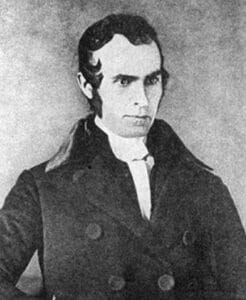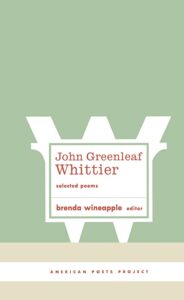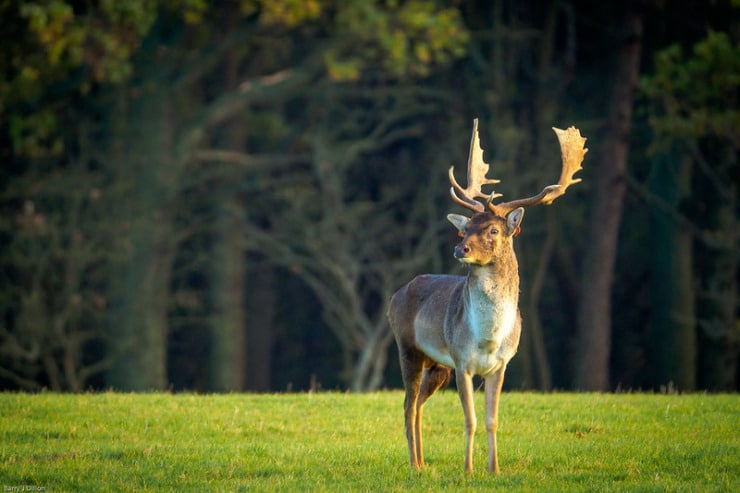John Greenleaf Whittier became one of the great American poets of the 19th century
Way back in high school (that’s way, way back), I always liked the poet John Greenleaf Whittier (1807-1892). I think it may have been more because of his middle name (it sounds vaguely Hobbit-ish) than any connection I made with his poetry. It also may have been a result of my English teachers defining 19th century poetry as Henry Wadsworth Longfellow and Emily Dickinson.
Whittier is known, now as well as when he was alive, as the “Abolitionist Poet.” His poetry included subjects and themes far beyond slavery, but it was those poems that made his reputation when he was alive. He lived a long life — almost 85 years. He saw his abolitionist sentiments become legal reality after a long, bitter, and destructive Civil War. He never married and had no family; he also outlived most of his friends and contemporaries.
What set him apart from most of his fellow abolitionists was his ideas of kindness and tolerance, likely reflecting his Quaker background. Many abolitionists were of the “take no quarter” variety. That wasn’t Whittier. His poems might see slavery as immoral and evil, but that’s not how he viewed people, even slaveowners.

John Greenleaf Whittier
I recently read a collection of selected poems by Whittier published by the Library of America. It was edited by Brenda Wineapple, author of books about Nathaniel Hawthorne, Emily Dickinson, Gertrude Stein, the impeachment of Andrew Johnson, and American history from 1848 to 1877.
In her introduction, Wineapple covers the live and major works of Whittier. After the Civil War, he became one of the best-known poets in the country, whose work was routinely memorized and recited in schoolrooms. His most famous poem, and the one that cemented his reputation, was Snow-Bound, A Winter Idyl, published in 1866.
It was a delight to read the collection and discover two poems I’d read more than 50 years ago but not since.
Maud Muller tells the story of a passing moment, when a judge riding by on horseback notices a young farm woman. Both imagine what it would be like to be married to each other. Their stations in life, however, preclude that from happening. But for the rest of their lives they wonder what would have happened, prompting Whittier to write, “For all the sad words of tongue or pen, / The saddest are these: ‘It might have been.’”
The second poem is Barbara Frietchie, the story of an elderly woman living in Frederick, Maryland, when Confederate troops under General Stonewall Jackson come marching through on their way to Gettysburg. An American patriot to the core, she defiantly shakes her Union flag at the passing troops and shouts at them. “’Shoot if you must, this old gray head, / But spare your country’s flag,’ she said.” The poem was published during the Civil War and was one of the most popular poems of the war.
One of his best-known abolitionist poems is “Song of Slaves in the Desert,” published in 1847. It tells the story of a people headed to an unknown destination, being torn from the land they lived in.
WHERE are we going? where are we going,
Where are we going, Rubee?

Look across these shining sands,
Through the furnace of the noon,
Through the white light of the moon.
Strong the Ghiblee wind is blowing,
Strange and large the world is growing!
Speak and tell us where we are going,
Where are we going, Rubee?
Bornou land was rich and good,
Wells of water, fields of food,
Dourra fields, and bloom of bean,
And the palm-tree cool and green:
Bornou land we see no longer,
Here we thirst and here we hunger,
Here the Moor-man smites in anger:
Where are we going, Rubee?
When we went from Bornou land,
We were like the leaves and sand,
We were many, we are few;
Life has one, and death has two:
Whitened bones our path are showing,
Thou All-seeing, thou All-knowing!
Hear us, tell us, where are we going,
Where are we going, Rubee?
Moons of marches from our eyes
Bornou land behind us lies;
Stranger round us day by day
Bends the desert circle gray;
Wild the waves of sand are flowing,
Hot the winds above them blowing.—
Lord of all things! where are we going?
Where are we going, Rubee?
We are weak, but Thou art strong;
Short our lives, but Thine is long;
We are blind, but Thou hast eyes;
We are fools, but Thou art wise!
Thou, our morrow’s pathway knowing
Through the strange world round us growing,
Hear us, tell us where are we going,
Where are we going, Rubee?
Whittier came from a relatively modest background, unlike many of his poetic contemporaries. Yet, by the end of his life, he had evolved into one of the most broadly recognized and lauded “great American poets” of the 19th century. He didn’t have to ask “what might have been” in the case of his own poetry.
Photo by Barry, Creative Commons, via Flickr. Post by Glynn Young.
How to Read a Poem uses images like the mouse, the hive, the switch (from the Billy Collins poem)—to guide readers into new ways of understanding poems. Anthology included.
“I require all our incoming poetry students—in the MFA I direct—to buy and read this book.”
—Jeanetta Calhoun Mish
- Longfellow’s “Paul Revere’s Ride”: Creating a National Legend - April 17, 2025
- Poets and Poems: Katie Kalisz and “Flu Season” - April 15, 2025
- Poets and Poems: Michelle Ortega and “When You Ask Me, Why Paris?” - April 10, 2025


Leave a Reply